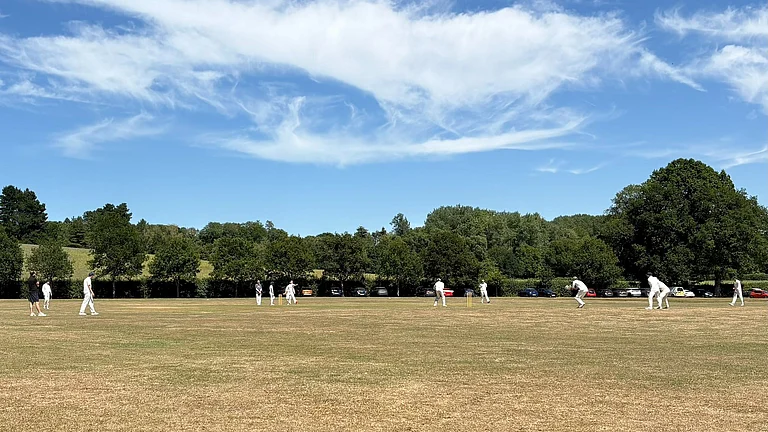There was a time, not very long ago, when a 'Delhiwallah' could be recognised by the specific quality of his witticisms. He could be identified by how he wore what he wore, what he ate and what he did at different times of the year. There was a time when there was a special kind of pride associated with belonging to this city, of being part of a distinct cultural milieu, of sharing a similar experience of history and defending a known value structure.
No longer. The Delhi of today is a vast and nondescript aggregation of individual wants. It has no collective soul. It has indeed pole-vaulted beyond the decaying feudalism of the Walled City, and the expansive exclusivism of Lutyen's Delhi, but only to fall in a huge ungovernable sprawl, a victim of its own amazingly haphazard over-reach.
Consider the facts. A population of over 12 million people, of which one-quarter live in slums, and one-third have no sanitary options except to defecate in the open. An endemic shortage of electricity and water. No mass transport system, overhead or underground. Dozens of illegal colonies and hundreds of thousands of unauthorised structures.
A municipal authority riddled with corruption and unforgivingly incompetent. And a pollution level which has given it a pride of place among the most polluted cities of the world.
Delhi, the capital of India, claims no allegiances from its citizens except for the bonding of common municipal woes. Today, it has come to represent an uncaring, urbanised space, where perhaps the single largest concentration of permanently insecure ladder-climbers in the world live, with little concern other than their own advancement. The arrivistes carp against this culture chasm, yet they come in droves.
Delhi, the city, has died because its citizens care nothing for it. The citizens of Delhi live only for the preservation of personal space. Those within the green spaces of New Delhi wish they did not have to co-exist with the polluting congestions of the other Delhi. The better off within this 'other' Delhi wish they could somehow wish away the squalor and deprivation of a third Delhi—the Delhi of the slums and the unwashed masses. Like some gigantic undigested particle, this third Delhi keeps beckoning a fourth city of newly arriving migrants from the countryside, in search of employment and the rags to riches dream. These are parts of a city; the city can make no claim to their civic obligations; the segments continue to grow, while the city dies.
Who can be blamed for this murder most foul? The poorest may constitute the largest numbers, but they have the least control. They mimic the prevailing ethos; they did not create it. The accusation of culpability must be laid squarely on the door-step of Delhi's affluent and more well-to-do citizens, and its aggressive middle class, who now appear to be irremediably infected by the one virus that is fatal to the survival of any city: social insensitivity.
Delhi stands ruthlessly forsaken by the very people who have arrived in it. Some of these live in Hauz Khas but have no clue what the monument is. Some of these have 'dealt' with the shortage of water by putting a booster on the main supply line, the neighbours be damned. Some of these have come to terms with the perennial power cuts by installing a diesel generator.Some have found a solution to the uncollected garbage outside their house by not looking at it. And some have found a ready answer to the rising graph of crime: higher walls and a 'guard' at the gate.
The signs of this lethal unconcern are everywhere. Look at the filthy backlanes of some of the most affluent colonies and you will understand why the city is dying.
Sidestep the uncollected garbage at some of the poshest shopping complexes, where lakhs of rupees worth of goods are bought and sold daily, and you will understand why hope in the survival of the city is unjustified. Go to any public park after a week-end and see the litter which middle-class picnickers have left behind, and you will understand why this city has long relinquished the social graces that prompted Zauq to remark: 'Kaun jaye par ab Dilhi ki galiyan chhod kar' ('who then can leave the streets of Delhi?').
Those who would have saved Delhi have allowed it to die because they believed that the city could survive even if their only concern was their own well-being. It was a fatal mistake. Cities are sensitive creatures. They have a soul. They can survive periods of neglect. They cannot survive if their patrons are boors, smug in their little fortresses of individual gain, with no sense of pride in where they live, and completely bereft of the municipal virtues of civic care and concern.






















